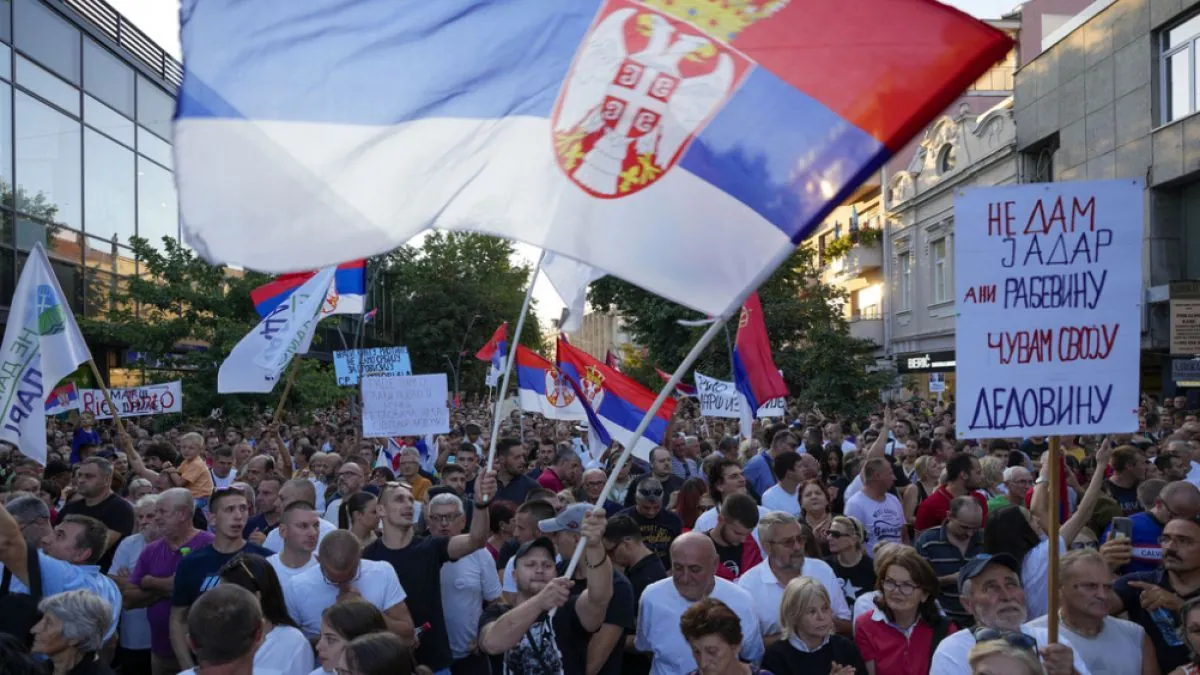Mass Protests in Belgrade Challenge Rio Tinto's Lithium Project
Thousands rally in Belgrade against Rio Tinto's lithium mine, citing environmental concerns. Government dismisses protests as political, while debate over economic benefits versus ecological risks intensifies.

On August 10, 2024, a massive demonstration unfolded in the heart of Belgrade, Serbia's capital, as tens of thousands of citizens voiced their opposition to Rio Tinto's proposed lithium mining project in Western Serbia. The protesters, concerned about potential environmental degradation, filled the streets leading to Terazije square, brandishing Serbian flags and expressing their dissent.

The demonstration highlights the ongoing tension between economic development and environmental preservation in Serbia, a landlocked country in Southeastern Europe with significant mineral deposits. Rio Tinto, an Anglo-Australian multinational mining company, aims to establish what could become Europe's largest lithium mine in the Jadar region, known for its unique mineral, jadarite.
The $2.4 billion Jadar lithium project has the potential to satisfy 90% of Europe's current lithium needs, positioning Rio Tinto as a leading global lithium producer. Lithium, the lightest metal and least dense solid element, is crucial for electric vehicle batteries and mobile devices, with demand projected to surge due to increased electric vehicle production.
Zlatko Kokanovic, a protest organizer and farmer from the Jadar region, urged demonstrators to block two major train stations in Belgrade. The protesters' chants of "You will not dig" and "Rio Tinto leave Serbia" echoed through the streets, reflecting their determination to protect agricultural land and water resources.
Government officials, including Vice Premier Aleksandar Vulin, dismissed the protests as politically motivated, suggesting they were designed to undermine President Aleksandar Vucic's administration. Vulin cited information from Russia about a potential coup, stating, "We have reason to be cautious."
The controversy surrounding the lithium project has a complex history. In July 2024, Serbia reinstated Rio Tinto's license to develop the mine, reversing a decision made by the previous government in 2022 to halt the process due to environmental concerns. This reinstatement triggered nationwide protests across Serbia.
"We are not going to give up. The mine cannot be built on agricultural land. This does not have anything to do with politics."
The debate over the lithium project reflects Serbia's broader economic challenges as it transitions from a state-owned to a market-based economy. The country has been working to attract foreign investment, with its mining sector contributing significantly to its GDP. However, some experts have criticized Serbia's environmental regulations as inadequate.
On July 19, 2024, President Vucic, German Chancellor Olaf Scholz, and EU Energy Commissioner Maros Sefcovic signed an agreement granting EU member states access to raw materials mined in Serbia, including lithium. This deal aims to reduce the EU's dependence on imports from America and Asia, aligning with Serbia's candidacy for European Union membership.
As the controversy unfolds, Serbia finds itself at a crossroads, balancing the potential economic benefits of the lithium project against environmental concerns and public opposition. The ongoing protests underscore the challenges faced by countries rich in natural resources as they navigate the complex interplay between development, environmental stewardship, and public opinion.


































